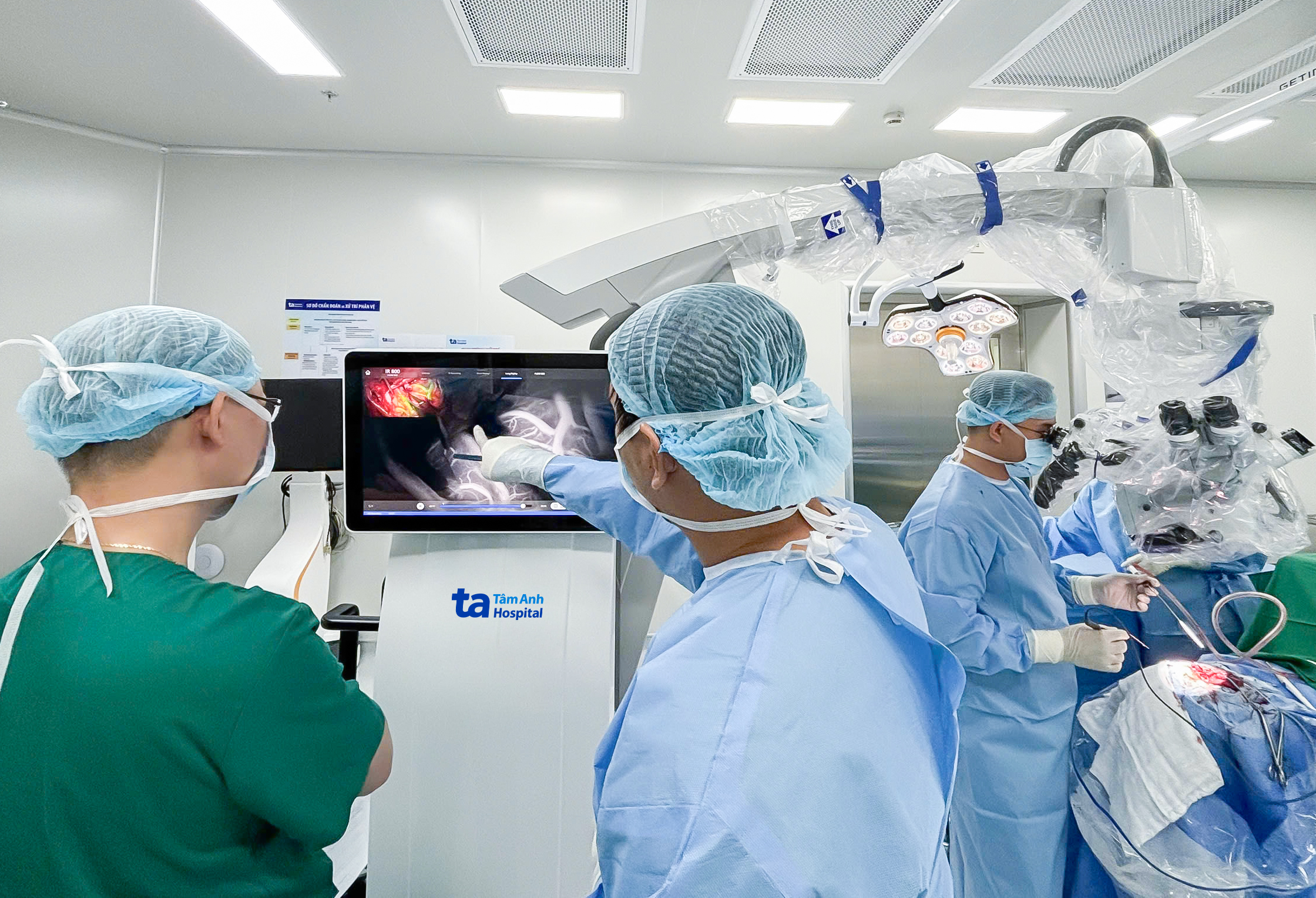Dr. Mai Hoang Vu, from the Neurosurgery Department of Tam Anh General Hospital's Neuroscience Center in Ho Chi Minh City, highlighted this common misconception. He noted that many stroke cases are mistaken for 7th cranial nerve palsy (Bell's palsy), leading to self-treatment with folk remedies like acupuncture, acupressure, and steam inhalation. Such improper treatment can worsen the condition and delay crucial treatment within the "golden hour."
The 7th cranial nerve controls facial movements. Paralysis can occur due to sudden exposure to cold, viral infections like the flu or shingles, middle ear infections, head or facial trauma, or intracranial lesions like tumors. Common symptoms include sudden facial drooping on one side, the mouth twisting towards the unaffected side, inability to close the eye on the affected side, and difficulty making facial expressions like frowning, puffing cheeks, or smiling. Some patients experience difficulty eating and drinking due to drooling and food falling out of their mouths.
Stroke, on the other hand, is a medical emergency. It occurs when blood flow to the brain is abruptly interrupted by a blocked blood vessel (ischemic stroke) or a ruptured blood vessel (hemorrhagic stroke), causing brain cell damage. Symptoms include facial drooping and paralysis similar to Bell's palsy, but are often accompanied by more severe signs like weakness or paralysis of limbs on one side, difficulty speaking, loss of balance, confusion, severe headache, or loss of consciousness.
According to Dr. Vu, both conditions require immediate medical attention. While Bell's palsy isn't life-threatening, delayed intervention can lead to complications like facial muscle spasms, facial asymmetry, and corneal inflammation. Patients should seek treatment within 72 hours of symptom onset for the best chance of full recovery. For stroke, the "golden hour" is 3-4.5 hours for ischemic stroke and 6-8 hours for hemorrhagic stroke. The sooner treatment begins, the better the chances of recovery.
 |
A doctor monitors brain tumor surgery that is compressing the 7th cranial nerve using AI-integrated microsurgery glasses. Photo: _Tam Anh General Hospital_ |
Individuals experiencing symptoms like facial drooping, crooked mouth, or difficulty speaking should immediately seek medical attention. A CT scan or MRI of the brain will help determine the cause and ensure appropriate treatment. If diagnosed with Bell's palsy, treatment will depend on the cause and severity. Typically, patients receive 7-10 days of anti-inflammatory medication to reduce nerve inflammation and swelling. If a viral infection is suspected, antiviral medication and vitamin B supplements may be prescribed to aid nerve recovery.
In cases caused by underlying medical conditions, surgery may be necessary to relieve pressure on the nerve caused by tumors or bone structure damage. Patients also benefit from physiotherapy, including facial exercises (massage, frowning, blinking) combined with electrical nerve stimulation to improve blood circulation.
For stroke, treatment varies depending on the specific case and may involve clot-busting medication, endovascular procedures, blood clot removal, or brain surgery. Delayed treatment can result in death or long-term disabilities like hemiplegia, aphasia, dementia, or even death.
To prevent Bell's palsy, Dr. Vu recommends keeping the head, face, and neck warm in cold weather, avoiding late-night showers, and preventing direct exposure to fans or air conditioning. Maintaining good overall health, getting vaccinated against relevant diseases, and avoiding head injuries are also crucial. Regular health check-ups, managing risk factors like high blood pressure, diabetes, high cholesterol, smoking, and adopting a healthy lifestyle with a balanced diet and regular exercise can help prevent stroke.
Nguyen Dieu
| Readers can submit their questions about neurological diseases here for doctors to answer. |












